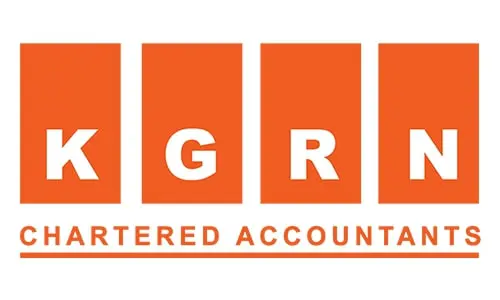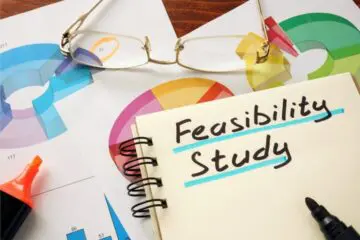A feasibility study is a vital step for business owners to do in order to establish whether or not their project or business idea is suitable for commercialization. It comprises conducting an exhaustive analysis of the market environment, determining whether or not the venture is financially viable, and identifying any potential risks. Through conducting a feasibility study, entrepreneurs can gain a great deal of knowledge regarding the market, the demands of customers, and the competition. They have the ability to mitigate risks, effectively distribute resources, and make decisions based on accurate information. In addition to this, they are able to build practical financial solutions. The ultimate goal of a feasibility study is to increase the possibility that the project will be successful by identifying potential issues at an earlier stage and establishing the foundation for a prosperous and long-lasting business.
A feasibility study is an analysis of the potential success of a business plan. Many would-be business owners act hastily, following the excitement of an initial concept without giving it much thought.
You’ve likely heard the adage, “Don’t judge a book by its cover,” before. The same logic applies when thinking about a company. Before investing your time and money, you should always determine whether or not the idea has a chance of succeeding.
Your company strategy should include details from a feasibility analysis. However, not every company owner needs to undertake their own feasibility study. In this post, we’ll go over the many types of company ideas, the procedures you should take to evaluate their viability, and the results you may expect to see.
Why your company shouldn’t discount the value of a feasibility study?
The feasibility study is a crucial research tool used to evaluate the potential, viability, and practicality of a prospective business. It encompasses several key elements:
- Assessing Success: The feasibility study serves as an excellent tool for determining the likelihood of success or failure for a new company initiative. It can also be utilized when considering the addition of new products or concepts to an existing company.
- Comprehensive Evaluation: All the necessary steps to determine the likelihood of success for a business proposal are included in the feasibility study. It follows a methodical process that helps weigh the benefits and drawbacks of each phase before proceeding further.
- Informed Decision-making: The study provides outcomes that inform crucial decisions, such as whether to pursue the concept further, refine it, or abandon it altogether. This allows businesses to make well-informed choices based on the findings of the study.
- Prerequisite for Business Strategy: The feasibility study is a prerequisite for developing a robust business strategy. It provides essential insights and data that shape the strategic direction of the business.
- Identifying Options and Fixes: Conducting a feasibility study helps identify potential options and fixes that may not have been discovered otherwise. By conducting this research upfront, businesses can avoid allocating resources, time, and money to a business idea that may not operate as intended. This prevents further investment in addressing previous errors.
- Data-driven Decision-making: Collecting and analyzing data during the feasibility study makes it easier to make informed choices about choosing the most lucrative route. It involves examining every aspect of incorporation and business operation, ensuring a comprehensive understanding of the potential risks and rewards.
Here’s why a feasibility study is essential for entrepreneurs in Dubai:
- Informed Decision-Making: It provides valuable insights into the market, competition, financial viability, and potential risks of your business idea. This data empowers you to make informed decisions about whether to pursue your venture, adjust your approach, or seek alternative options.
- Reduced Risk and Uncertainty: By identifying potential challenges and roadblocks early on, you can develop strategies to mitigate them. This proactive approach reduces the risk of costly mistakes and setbacks, improving your chances of success.
- Enhanced Financial Credibility: A well-crafted feasibility study acts as a professional document that showcases your business proposal to potential investors or lenders. It demonstrates your seriousness, thoroughness, and understanding of the market, increasing their confidence in your venture.
- Optimized Resource Allocation: The study helps you estimate the resources required to launch and operate your business, including start-up costs, operational expenses, and manpower needs. This allows you to allocate your resources efficiently and avoid financial mismanagement.
- Competitive Advantage: Understanding your competitors’ strengths and weaknesses through market analysis provides you with a clear edge. You can leverage this information to differentiate your offerings, gain a competitive advantage, and attract your target audience.
Feasibility Study components include (but are not limited to),
Economical Viability
A feasibility study can determine whether a specific business idea is financially appealing. Without financial means, no action can be carried out. This covers the estimation of all expenditures, from the initial project costs through ongoing operating expenses as the project nears the end of its existence. The initial cash is one of the most significant expenses. The analysis entails figuring out how much money is needed to launch a firm.
The potential sources of generating this capital are provided when these have been determined. The return on investment is another significant number (ROI). An activity’s potential for financial advantage is developed. Future financial flows that could potentially occur are calculated. It also advances the payback period, which shows how long it will take an investment to become profitable. Thus, all of these statistics are compiled into a single document.
Financial viability
A feasibility study determines the financial gains the business will realize. It demonstrates to what extent the idea’s financial benefits outweigh its financial drawbacks. The comparison of all the expenses to be paid and the rewards to be gained is done with accuracy. This not only establishes the project’s viability but also points the company in the direction of protecting itself from an insufficient resource allocation. The idea’s viability is evaluated, and management gets a clear summary of all the different expenses it will have to pay from the project’s inception to completion. The total economic viability of the project is determined by comparing these expenses to any potential advantages.
Feasibility Study of the Market and Marketing
Market feasibility is a crucial component of the feasibility research. This section contains all the information about the relevant industry. The industry’s size, retail value, and trends are among the vital facts acquired. Both the current market and its possibilities for the future are examined. In order to guarantee the business’ success, a thorough review is necessary. The environment for competition is also ready. As a result, the company chooses the best positioning plan for itself in relation to the competitors.
It also establishes the product or service’s description. All potential outcomes are taken into account and evaluated in order to choose the most advantageous one. The size of the market in terms of possible purchasers is also calculated, along with a profile of the potential clients. Sales forecasts can be estimated using previous data.
The target audience’s various places are investigated, and the most advantageous audience and location may be chosen. It is possible to determine the target audience’s level of tolerance for the deliverable. It guarantees that the appropriate product is created for the appropriate customers. Decisions and pricing plans are made. It points decision-makers in the direction of finding the best chances.
Technology Readiness
The support network necessary for efficient business operations is another fundamental. It’s possible to find several logistics-related options. It aids in discovering the resources’ availability in terms of the necessary labor, materials, and pertinent technology. The firm’s technological resources’ potential has been estimated. A skill evaluation of the technical staff is carried out. Any weaknesses are examined, along with potential solutions. It also entails assessing crucial systems, such as the technological requirements for the system’s hardware, software, and other components.
Operational and Organizational Viability
The need for human resources is also carefully considered. This category includes an evaluation of the firm’s capability as well as the professional skill requirements. The requisite professional backgrounds and any weaknesses in the current human resource of the new company or project are examined. Decisions on recruiting may be based on the feasibility study in the absence of a productive team. Accordingly, the complete corporate and legal organizational framework is planned. In a similar vein, this analysis aids in ensuring that the company has enough resources for efficient functioning.
Legal Possibilities
Every nation has specific legal ramifications. It is important to take into account any legal regulations that can impede corporate operations. This research investigates every legal aspect that can be at odds with the suggested enterprise. All applicable legislation and protective measures are taken into consideration. Learning about any locational restrictions that may apply to a company’s operations owing to legal obligations can help that organization save a lot of time and work.
Planning Possibility
The various stages of the business’ lifespan are planned for and taken into consideration. The key checkpoints and the whole schedule for achieving them are listed. The various stages of company activity are estimated based on future estimates. There is a list of all the necessary tasks and the times at which they must be completed.
Project sturdiness
One project involves a significant amount of investment and priceless resources. These must be used to the fullest extent possible. A feasibility assessment maps out the project’s potential whole course. It contains important data, such as financial estimates. It makes sense to choose the venture or project that will be most resilient to long-term challenges and future financial concerns.
Constraints
The examination leads to the identification of all potential business limitations in the feasibility study. These could include financial, technical, resource-related, technological, financial, marketing, logistical, legal, and environmental restrictions, among others. An estimate of these restrictions offers a clear picture of all the issue areas where the project may encounter roadblocks in the future and their underlying causes.
Important choices
The choice to move forward with the business is one of the feasibility study’s main purposes. A clear image of the many features is formed because all the business-related factors are included. Due to the limited availability of resources, it is crucial to make sure they are being used effectively. It is crucial to choose the best course of action since doing so prevents valuable resources from being spent on unproductive endeavors and allows them to be put toward more lucrative ones down the road. By making consideration of the new initiative contingent on how the return is compared to the investment, a corporation protects itself from potential losses. In addition, a feasibility analysis gives specific arguments against the anticipated enterprise.
Conclusion:
Investing in a feasibility study is an investment in your business’s future. It reduces uncertainty, minimizes risk, and provides a roadmap for success. In the competitive environment of Dubai, entrepreneurs who utilize this valuable tool are more likely to navigate the challenges and achieve their desired results.
Since it assists in evaluating many possibilities and their ramifications, the study is an experimental process. One of the most crucial decisions in business development is whether to move forward or not because decisions cannot be undone and it is always preferable to take measured actions than to correct unwise ones later.
KGRN is the most qualified of all the Feasibility Study Consultants in Dubai. contact for assistance and support from trained professionals.





